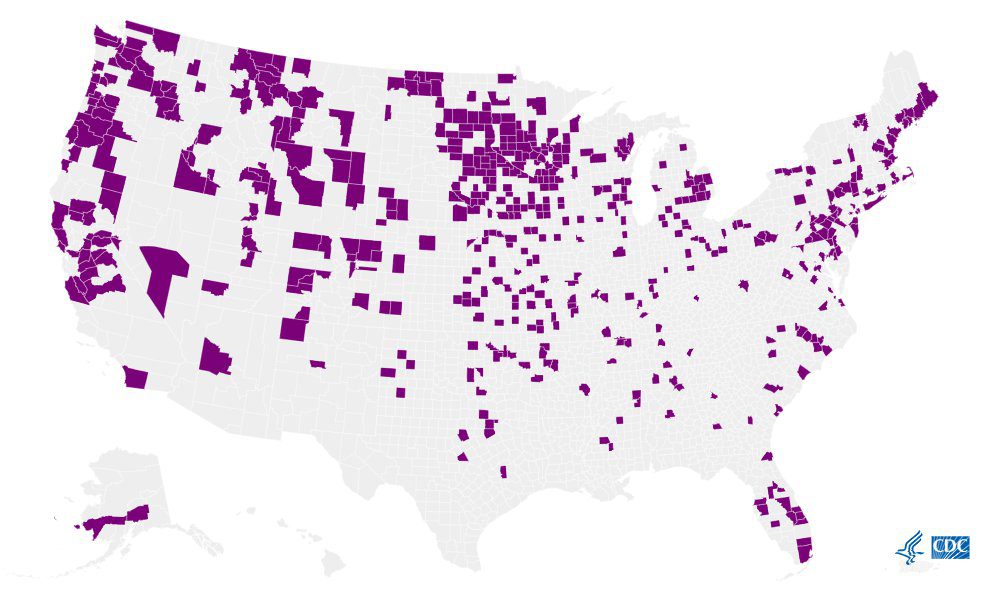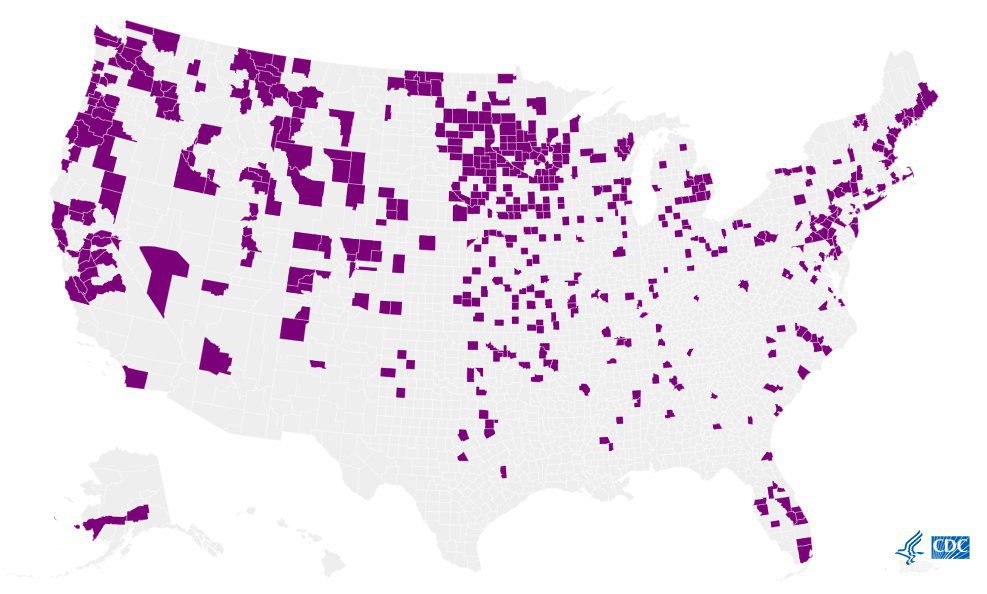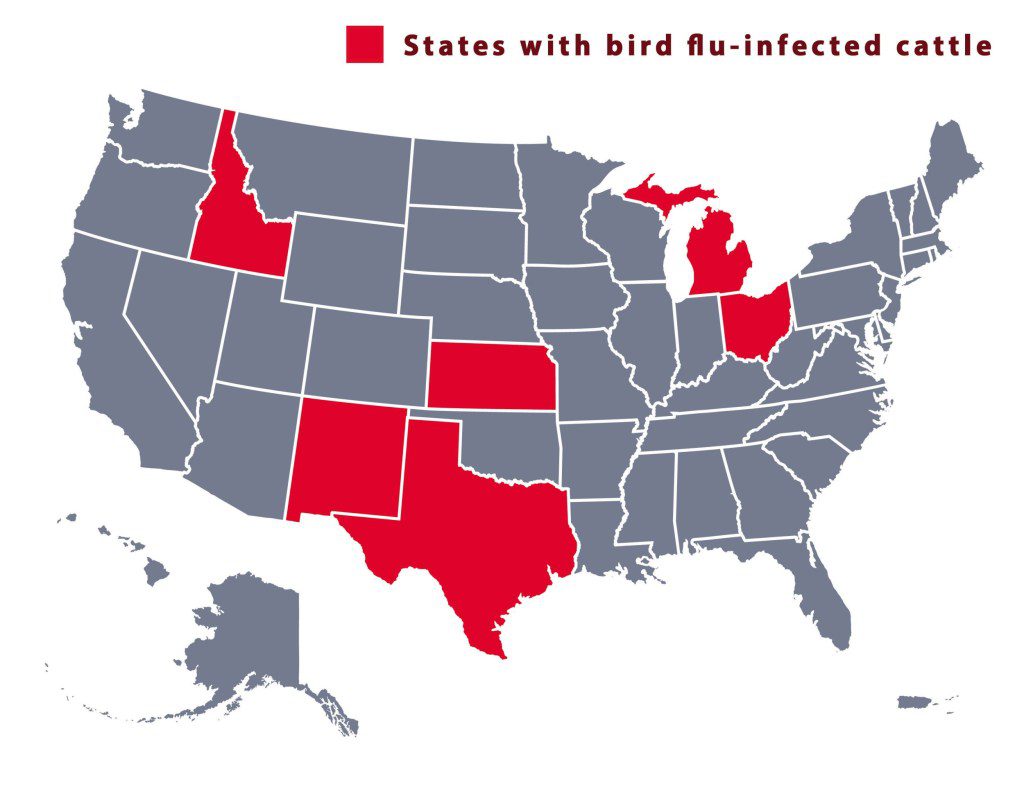Outbreaks of the spreading bird flu have been registered in almost every state, according to the US’s national public health agency which has issued a new health warning.
The H5N1 variety of bird flu has impacted 48 states and 513 counties, collectively reporting 1,116 outbreaks, according to the most recent update from the Centers for Disease Control and Prevention (CDC) latest update on Wednesday.
A CDC map reveals counties across the US have reported outbreaks of the bird flu, with some states showing more spots than others.
Only two states have not had outbreaks – Hawaii and Louisiana.
On Friday, two days after the map was updated, the CDC issued a health alert informing clinicians, state health departments and the public of recently confirmed H5N1 infection in a human, presumably from dairy cattle.
Have humans been infected with the bird flu?
The advisory detailed the first case ever of a human catching the bird flu from dairy cows in the US. The patient is a farm worker at a commercial dairy farm in Texas and developed conjunctivitis around March 27 and then tested positive for H5N1.
Shortly before the human infection, the avian influenza was found in cows for the first time globally in the US states of Texas, Kansas and New Mexico.
Since then, the bird flu has infected cows in three more states: Idaho, Michigan and Ohio.
Have there been bird flu deaths?
No deaths or severe H5N1 cases have been reported thus far in the US.
The CDC is recommending that people avoid being near sick or dead animals and surfaces contaminated with animal feces, litter and raw milk when not wearing eye and respiratory protection.
'Currently, HPAI A(H5N1) viruses are circulating among wild birds in the United States, with associated outbreaks among poultry and backyard flocks and sporadic infections in mammals,' stated the CDC in its latest alert.
'The current risk these viruses pose to the public remains low.
'However, people with job-related or recreational exposures to infected birds, cattle, or other animals are at higher risk of infection and should take appropriate precautions.'
.













